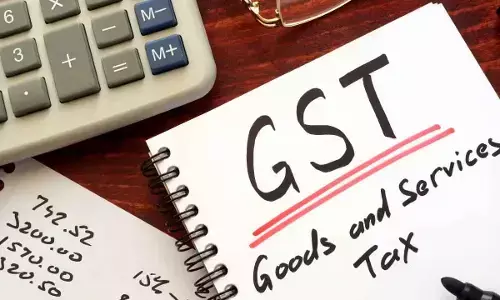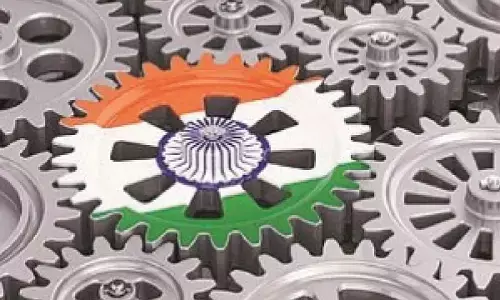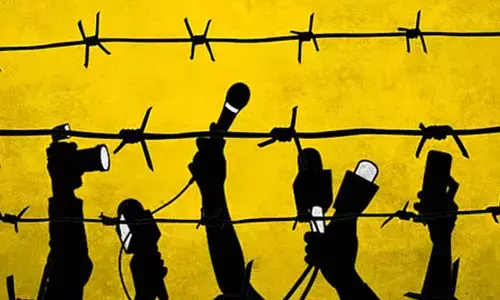Delegation and decentralisation

“Power corrupts”, said Lord Acton – “and absolute power corrupts absolutely”.
"Power corrupts", said Lord Acton – "and absolute power corrupts absolutely". While the corrupting influence of power and authority is a malaise of greater and complex severity, the more common failing is the difficulty in allowing others the share in the authority placed in one's hands.
To understand this issue clearly it is necessary, to begin with, to appreciate the distinction between "delegation" and "decentralisation". Longman's Dictionary, defines delegation as "the process of giving part of one's power or work to someone else in a lower position ……" who will be responsible for doing the work assigned.
"Decentralisation", on the other hand, means to move parts of work and related responsibilities of government or organization from a central place to several different smaller entities with empowerment.
Thus, If you gave an envelope containing a letter to a messenger to post (always assuming that you continue to indulge in this rather archaic practice!), it would be a case of decentralisation. Once the envelope has been handed over, you have no control over what happens to it.
On the other hand, if you were to use that messenger also to write out the letter to your dictation it would merely amount to delegation as the latter would only be performing the function of writing the letter mechanically on your behalf.
The relationship between a teacher and a class monitor is another example of delegation which is not decentralisation. So is the case of a senior lawyer allows his junior to argue a case under his close observation or, again, a surgeon who permits his assistant to perform a procedure while keeping an eye on what is going on.
In these cases, there exists no parting with or sharing of power, authority or accountability.
Another phenomenon that serves to emphasise the point under is the manner in which cooperative instructions at the higher ranks of the hierarchy deal with their constituents, whose federations they are.
National, state and district level institutions, particularly in the credit and marketing structures, often open branches directly under their administrative control which perform functions precisely the same functions as those of their members.
The unhealthy competition that is generated and the negation of the very principle of cooperation are another sad commentary on the inability to part with power and influence.
This columnist remembers with nostalgia, and a bit of wonder, how he toured villages as a sub-collector and sanctioned drought works on the spot at a time of adverse seasonal conditions, in Ongole sub-division in the early 1970s.
These days that function could be performed perhaps only at the district level and, even then, only after prior consultation with the elected members of the Assembly and Parliament.
Then there was the instance where this columnist, during his tenure as Deputy Commissioner of Commercial Taxes at Visakhapatnam, felt the need for the location of a Commercial Tax Office at Bobbili in Srikakulam district. He promptly ordered an office from elsewhere in his jurisdiction to be shifted to that place.
As it turned out that authority vested, at that time, not even with him, not with the (the then) Board of Revenue (under which he was working), but with the state government and had actually to be approved by the Council of Ministers!
A Krishna Swamy the then First Member Board of Revenue, who was also the Commissioner of Commercial Taxes, contented himself with a mere reprimand of this columnist telling him to seek less ratification of actions in the future!
On another occasion, this columnist as Managing Director of the Andhra Pradesh Fisheries Corporation, approved the deputation of seven of his officers for a training course abroad, believing genuinely that the autonomy enjoyed by the Corporation permitted such an action.
Once again, it turned out that it was something only the state government could have done. And, once again, this columnist was let off with a mild rebuke and a caution to be more careful in the future. These instances have been quoted to show how liberal and understanding administration at the higher levels was in the earlier days.
To return to the difficulty individuals in the institutions experience in sharing authority, this columnist recalls a meeting of the National Commission for Women which he attended as Chief Secretary to Government of Andhra Pradesh.
One member (no other than the present Finance Minister of India) told him rather plainly that male domination in society was largely on account of the fact that it is "so difficult to let go of power and authority".
This is so pointedly illustrated in the attitudes one sees between the central government and the states on one hand and the states and the Panchayati raj institutions on the other. The fact that states in India have literally no financial manoeuvering space is too well known to bear repetition.
But, while shouting from the rooftops about the possessive attitude of the central government in regard to financial powers, the states, in turn, have done precious little in the matter of decentralisation of authority to Urban Local Bodies (ULBs) and Panchayati Raj Institutions (PRIs, a constitutional duty demanded of them.
Nearly all the states are guilty of having confined their statutory obligation in this regard to the issuance of orders without any intention of implementing them.
This is the state of affairs, despite the 73rd and 74th amendments to the Constitution of India, which were brought in to make it mandatory for all states not only to decentralise authority in respect of 29 subjects, but also to empower the ULBs in and PRIs by providing them with functions, functionaries and funds.
In terms of expressing a sincere intention to convert the spirit of the 73rd Constitutional amendment into concrete action, the initiative taken by Jaganmohan Reddy's Andhra Pradesh state government recently comes closest. Village Secretariats have been constituted, posts created and recruitment completed.
In other words, functions have been decentralised and functionaries appointed. Allocation of funds alone remains.
One will have to watch and see how soon and effectively that will be done. That it is a good beginning cannot, however, be denied. This commendable initiative will, however, succeed in full measure when supported by putting in place grassroots-level ability to make plans so that arrangement can lead to productive and sustainable use.
The creation by the state government of Telangana of Additional Collectors posts in every district, exclusively in order to strengthen the working of the Panchayati Raj institutions, is also a step that augurs well in the direction of decentralisation of power.
Then there was that union minister of state, who was also a prominent figure in the film industry, to whom the only subject delegated by the cabinet minister was the official language!
The manner in which the relationship between the Government of India and the Reserve Bank has evolved over the past few years, especially in the areas of macro management of the economy, control over matters related to currency, foreign exchange regulation and supervision of the banking sector hardly creates confidence in one's mind about the government of India's willingness to respect the statutory autonomy the central bank is expected to enjoy.
One sees in these telling illustrations a clear demonstration of the distinction between the willingness to delegate and the strength of character needed to decentralise.
The problem with our polity appears to be an essential lack of sincerity about accepting the supremacy of the authority of the people, a spirit that informed the fundamental features of the Constitution of India.
In the United States of America for instance the wisdom and maturity of the people are valued to the extent of providing for even judges and police officials to be elected.
One wonders whether there is something in the psyche of our country, in the structure of our social dynamics, that discourages the empowering of individuals and institutions, whose supervision, direction and control have been placed in one's hands.
This columnist has always found it effective and convenient first to choose competent and trusted lieutenants and team members. After that they were given total administrative freedom and financial autonomy with the caveat however, that specific deliverables would be expected from them.
This invariably led to authority and responsibility coexisting and accountability being automatically available. Needless to say, optimum performance followed from the individuals as well as the team.
Happiness, it is said, doubles when shared, while grief halves. This columnist had, in fact, at one point of time, tell a Chief Minister, that power and authority are also like happiness.
The more the decentralisation and delegation the greater become the strength of their source. How one wishes that this salutary principle would gain wide acceptance among political leaders and senior civil servants!
(The writer is former Chief Secretary, Government of Andhra Pradesh)

















